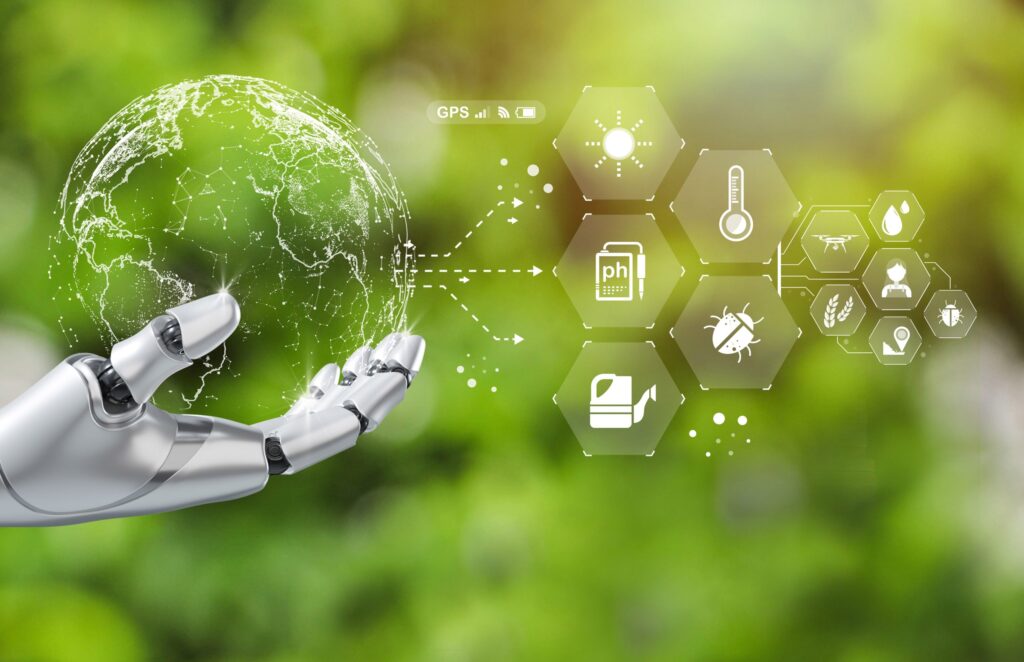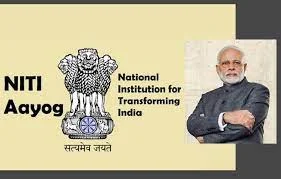Table of Contents
Introduction
As India advances on its journey toward economic growth, the nation faces a critical challenge: balancing urbanization with sustainability. Over the next two decades, approximately 270 million citizens are projected to join India’s urban centers. This rapid urbanization presents significant challenges to infrastructure, resource management, and environmental sustainability. To fulfill the dream of Viksit Bharat 2047—the vision for a developed India by the 100th year of independence—innovative solutions are imperative.
Artificial Intelligence (AI) emerges as a powerful tool in addressing these challenges, offering transformative capabilities for data analysis, decision-making, and system optimization. With AI, India can navigate its path toward sustainable development while creating a better future for generations to come.
The Role of AI in Sustainable Urban Development

AI in sustainable urban development extends beyond mere automation. Its ability to analyze vast datasets, simulate scenarios, and provide predictive insights makes it uniquely suited to tackle complex urban challenges. Here are key areas where AI can make a significant impact:
Data-Driven Decision Support Systems
Urban planners and policymakers often face difficult decisions that require balancing economic, environmental, and social factors. For example:
- A building authority deciding on a zoning change for wetlands might currently rely on precedents and subjective judgment.
- With AI, decision support systems can simulate multiple scenarios, showing how the zoning change could impact economic growth, biodiversity, and urban development.
This evidence-based approach ensures decisions are aligned with long-term sustainability goals.
Enhancing Public Transport Systems
To make public transport a viable alternative to private vehicles, last-mile connectivity must be seamless. AI can optimize transit systems by:
- Analyzing commuter data to plan routes and schedules.
- Predicting demand spikes to deploy resources efficiently.
- Integrating multimodal transit options (buses, metros, bicycles) for smooth journeys.
AI systems can also ensure that public transport systems remain reliable and efficient, encouraging greater adoption by urban populations.
Digital Twins for Urban Governance
A digital twin is a virtual replica of a city, enhanced with real-time data. AI-powered digital twins can help municipalities:
- Monitor infrastructure health and predict maintenance needs.
- Simulate the impact of urban development projects.
- Enable more effective resource allocation.
This digital transformation not only improves governance efficiency but also empowers local authorities to address challenges proactively.
Environmental Monitoring
AI can revolutionize environmental sustainability efforts by:
- Providing low-cost, high-precision estimates of air and water quality.
- Detecting pollution hotspots and recommending targeted interventions.
- Predicting climate risks like floods or heatwaves based on urban metabolism models.
These insights allow local governments to implement timely and effective policies.
India’s Commitment to AI-Driven Sustainability
Recognizing the potential of AI, the Government of India has made urban sustainability a key focus area. In the 2023-24 Budget, the government allocated ₹990 crore to establish three national AI centers for agriculture, health, and urban sustainability under the “Make AI in India, Make AI Work for India” initiative.
The Airawat consortium, led by IIT Kanpur, was chosen as the National Center for AI for Sustainable Cities. This consortium brings together leading academic institutions, industry partners, and government bodies to integrate AI with urban sustainability objectives.
Airawat: Shaping Sustainable Indian Cities
Under Airawat’s mandate, the focus for its first four years includes:
- Energy Efficiency: Collaborating with partners like Adani Industries to enhance energy distribution networks.
- Multimodal Transit Planning: Developing open-source platforms for urban transit systems.
- Traffic and Infrastructure Planning: Creating decision-support tools for infrastructure development.
- Environmental Monitoring: Producing high-quality air and water quality data.
- Digital Governance: Transforming municipal governance through AI-enhanced digital twins.
Airawat also leverages support from major Indian companies like Tata Consultancy Services, which contributes urban metabolism models to predict the effects of land-use changes.
Challenges and Opportunities
While AI presents transformative opportunities, challenges remain:
Challenges
- Data Availability: Many Indian cities lack comprehensive, high-quality datasets for effective AI implementation.
- Integration: AI systems must work seamlessly with existing infrastructure and governance frameworks.
- Affordability: Scaling AI solutions to smaller cities and towns requires cost-effective innovations.
Opportunities
- Global Leadership: Successful AI-driven sustainability can position India as a global leader in urban innovation.
- Economic Growth: Efficient urban systems can boost productivity and attract investment.
- Environmental Preservation: AI can help India achieve its climate goals by monitoring and mitigating ecological degradation.
AI and the Vision of Viksit Bharat 2047

The vision of Viksit Bharat 2047 encapsulates a developed and sustainable India. AI’s integration into urban systems is a cornerstone of this vision, enabling:
- Smart Cities: AI-powered systems for traffic management, waste disposal, and energy optimization.
- Inclusive Growth: Ensuring equitable access to resources and opportunities for all citizens.
- Global Sustainability Leadership: Sharing AI solutions with the world, cementing India’s role as a Vishwaguru (world teacher).
As India strives to “get rich before it gets old,” leveraging AI for sustainable development is not just an option—it is a necessity.
FAQs
1. What is the role of AI in sustainable urban development?
Ans: AI helps address complex urban challenges by analyzing data, predicting outcomes, and optimizing systems for better decision-making. Its applications include public transport planning, environmental monitoring, and governance enhancement.
2. What is the Airawat consortium?
Ans: Airawat, led by IIT Kanpur, is the National Center for AI for Sustainable Cities. It focuses on integrating AI into urban systems to enhance sustainability.
3. How can AI improve public transport?
Ans: AI can optimize routes, schedules, and last-mile connectivity, making public transport more efficient and appealing to commuters.
4. What are digital twins, and how do they benefit cities?
Ans: Digital twins are virtual replicas of cities that use real-time data to simulate scenarios, monitor infrastructure, and improve governance.
5. What challenges does AI face in urban sustainability?
Ans: Challenges include data availability, integration with existing systems, and affordability for smaller cities.
Glue Dream strain This is my first time pay a quick visit at here and i am really happy to read everthing at one place